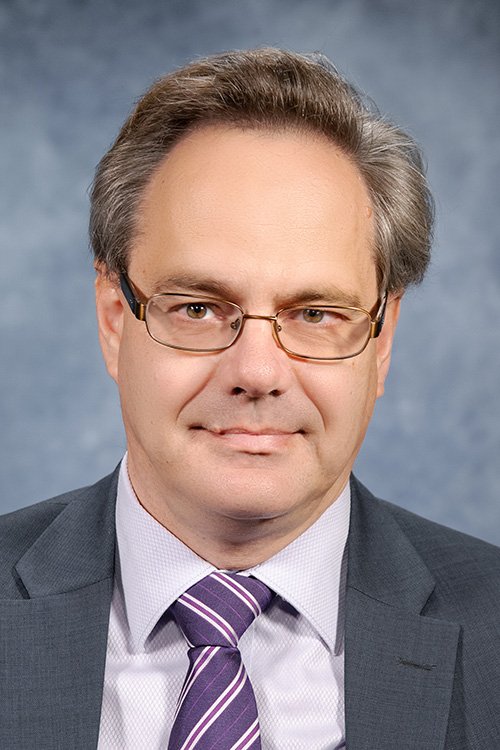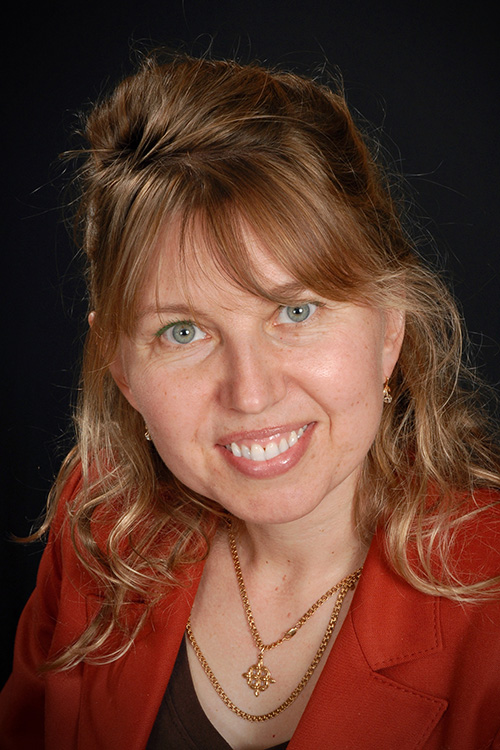
The actuarial program at The University of Texas at Dallas has been recognized by the Society of Actuaries (SOA) as a Center of Actuarial Excellence (CAE), joining a group of 19 elite programs in the U.S. with the society’s highest designation.
UT Dallas is the first institution in Texas and the only one in the Southwest to earn the distinction.
The Department of Mathematical Sciences within the School of Natural Sciences and Mathematics (NSM) has offered a bachelor’s degree in actuarial science since 2009. The master’s degree program accepted its first students in 2013 as the first such program in Texas.

“This honor is outstanding evidence of the highest academic standards that have developed in the short lifespan of our program,” said Dr. Vladimir Dragovic, professor and department head of mathematical sciences. “This outcome reflects the hard work of the actuarial group and the flourishing atmosphere of support and mutual respect between diverse academic groups cultivated within the department. Together, mathematicians, statisticians, actuaries and data scientists built a unit without boundaries between us.”
Actuaries use their proficiency in statistics, probability and mathematics to address business problems involving cost projections of contingencies. Those entering the field must obtain professional recognition by taking one or several of seven qualifying exams, depending on the precise job’s requirements. The SOA oversees several of the credentialing exams.
According to the U.S. Bureau of Labor Statistics, actuaries are projected to be among the 20 fastest-growing jobs this decade, and, among those 20 jobs, the profession with the third-highest median annual wage.
To qualify for the CAE designation, university and college programs must meet eight criteria and specific requirements. These criteria include appropriate degree and curriculum offerings; the number and quality of graduates; faculty composition; appropriate integration with other areas of study; connection to industry; and research and professional involvement.

Clinical professor Dr. Natalia Humphreys, associate head of the actuarial program, said she expects the CAE designation to help bolster the program’s recruitment.
“The Society of Actuaries gives students at CAE schools certain opportunities, which can eventually include receiving credit for passing qualifying exams by earning high grades in specific classes,” she said. “Hopefully, we are going to have elite students flock to our school from all over the South and West.”
Humphreys said that often the most difficult criterion for CAE applicants to meet is having faculty members publish research in the top academic journals in the field. The addition of Dr. Liang Hong, associate professor of mathematical sciences, to the faculty in 2020 helped the program meet this requirement.
“My research in actuarial science focuses on applying cutting-edge methods in statistics, especially Bayesian analysis, and machine learning to solve challenging problems in insurance and risk management,” Hong said. “My work sets out to refine extant methods, tackle new issues and address practical issues of insurance regulations.”
Hong specializes in property and casualty areas, and has recently focused on issues surrounding self-driving vehicles. For instance, “Is a genuine autonomous car insurable?” he asked. “If so, how do you fairly price the insurance for such a car?”
Dr. Sam Efromovich, professor of mathematical sciences and co-founder of the actuarial science program, said Hong has vast experience in teaching and research in actuarial science, while Humphreys is “the heart and soul of the program.”
“Her connections and frequent meetings with industry representatives are just one example of the hard work that helps our students earn internships,” he said.
Actuarial Science at UTD
The actuarial bachelor’s degree program at UT Dallas gives students a rigorous background in mathematics. Courses devoted to computer science, finance, economics, accounting, statistics, insurance, information technology and actuarial science are also required.
The master’s program trains students in actuarial theory and methods in a variety of applications. Students will be prepared to take five actuarial preliminary exams and will take two advanced actuarial classes to prepare for professional accreditation.
Efromovich also credited clinical assistant professor Dr. Wenyi Lu, who is the advisor for the master’s program; professor of instruction Dr. Yuly Koshevnik; and assistant professor of instruction Dr. Neha Makhijani, whom he described as an “integral part of the program,” with their wide range of teaching responsibilities.
Efromovich said the designation would not have been possible without years of support from University administrators who backed the creation of the program, as well as alumni, business partners and colleagues in the Naveen Jindal School of Management, the School of Economic, Political and Policy Sciences, and the Erik Jonsson School of Engineering and Computer Science.
“The CAE designation of our actuarial program is a well-deserved honor that reflects the strong foundation the department has built in this important area of projected job growth,” said Dr. David Hyndman, dean of NSM and the Francis S. and Maurine G. Johnson Distinguished University Chair. “We expect that this recognition of excellence will increase the number of students joining the program in the years to come.”